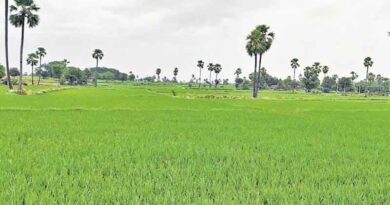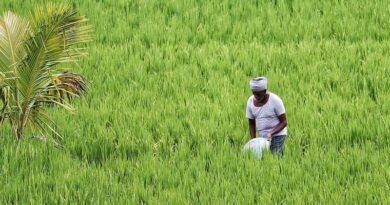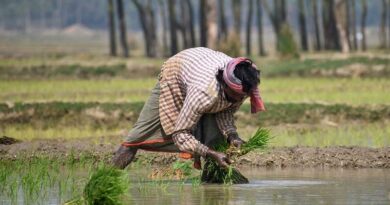Its not the end of farmers’ protest in India
Guest Author: Devendra Sharma
03 January 2022, New Delhi: PM Modi’s suddenly announcement to withdraw the three agriculture-related law feels as if farmers’ woes have come to an end, but in reality it is just a phase of farmers’ struggle. The question is, what needs to be done to make Indian agriculture better.
The decision to abruptly withdraw the three controversial agricultural law provides a historic opportunity to rethink the future of Indian Agriculture and reframe it as an ‘Evergreen Agricultural Revolution’. Once the festivities of farmers’ victory are over, it is imperative for the political leadership to rethink the economic fabric of agriculture to make it the ‘powerhouse’ of economic development.
Non-sustainable food system
The neo-liberal economists will weep with bittersweet words on this matter, but the need of the hour is to make agriculture a profitable business, along with its economic viability and make it sustainable according to the changing environment. At this time, as the entire world rises to replace the unhealthy and non-sustainable food system, India has the potential to provide a roadmap for safe and healthy farming for the people of the planet. Prime Minister Narendra Modi’s late but bold decision to roll back the proposed reforms in agriculture could be the first step taken to reform agriculture.
I call it reformist because many proposals to reform the agricultural market have failed in all countries. From the US to Australia and Chile to the Philippines, the market has only added to the current problems of agriculture. In the US, Canada and other countries, the market has successfully driven small farmers out of agriculture by increasing their debt and making agriculture a major emitter of greenhouse gases. In such a situation, to believe that these markets will do some miracle in India is nothing but an illusion.
Continued decline in agricultural income
Looking at North America, agricultural income has been steadily declining for more than 150 years in spite of high investment, technological innovations, very advanced international value chain. The US Department of Agriculture concluded in 2018 that farmers’ share of every dollar spent by consumers is only 8 cents, or eight percent, and this situation is pushing farmers towards extinction.
Failed to increase the income of farmers
Knowing that markets everywhere in the world have failed to increase the income of farmers, we are creating market centric systems. The decision to withdraw farmer laws may have been taken in view of the coming assembly elections or for economic reasons, but the truth is that the so-called reforms have obstructed the paths that can revive agriculture and make farming a proud business again. The vitality shown by the agitating farmers by standing on the borders of Delhi throughout the year has drawn the attention of the country to the plight of the farming community. It is time to address the need for policy-making arising out of the protest and re-establish the farming system as a healthy enterprise for the future.
No relief
The decision to withdraw the Agriculture Act is like winning half the battle. This means a return to the status quo, which means there is little to no respite for farmers facing severe agrarian distress. It is certainly the first round of victory for the farmers, but the race is not over yet. Unless the income necessary for the livelihood of the farmers is ensured in terms of demand and supply, the exploitation of the farmers will continue. The food system cannot be changed without a guarantee of income from agriculture. This is the reform in agriculture which is being eagerly awaited not only in India but all over the world.
40 percent less price
If we assume that the farmers get 40 percent less than the market rate against the Minimum Support Price (MSP) announced by the government for 23 crops, then it means that the farmers are not even able to cover the cost of their produce. When a farmer does farming, he does not understand that he is actually cultivating loss. Except in those places where the MSP system for wheat and rice is in place, in the rest of the country, farmers do not even know what they are being denied. This was accepted in the 2016 Economic Survey stating that in 17 states of the country, that is, in more than half of the country, the average income from agriculture is only 20 thousand rupees annually. Not only this, the multiplication of the Situational Survey of 2019 shows that the average daily income from agriculture has come down to only Rs 27.
Agriculture needs improvement
Making MSP a statutory right for farmers means that the purchase of produce below the prescribed price is not allowed. Indian agriculture really needs this reform. This is the second reformative step in agriculture. When farmers have more money in their hands, then farming will not only be economically efficient, but the country’s Gross Domestic Product (GDP) will also take a leap. This will strengthen the condition of rural livelihoods and reduce the pressure of employment in the cities. Along with this, due to increase in demand in rural areas, the economy of the villages will revive. It is time to change the faulty economic design that has been created by sacrificing agriculture to save industries. Convert it to an economics that works for the people and requires investment in human capital.
Deprived of benefits
A large number of farmers will be deprived of the benefits even after the MSP is guaranteed. These are the small and marginal farmers who do not have surplus produce to sell in the market, but play a vital role in ensuring the food security of the family. For these, the entitlement under the Pradhan Mantri Kisan Samman Nidhi Yojana should be increased. The farmers’ protest in India, which is the largest and longest protest in the world, has attracted worldwide attention. Farmers have successfully challenged the age-old economic thinking that seeks to keep agriculture impoverished. It is no less achievement and if it is evaluated honestly, it has the potential to sow the seeds of an evergreen revolution. Evergreen Revolution is a term coined by agronomist Dr. MS Swaminathan, in which a production system has been considered indispensable, which speaks of traditional knowledge, available biodiversity and farming method that
Environment
There is a need to redesign the farming system, bring the market closer to the farmers and develop a food delivery system that provides nutritional security to the family. But achieving this is beyond the power of those who have put agriculture in jeopardy. We have to start afresh. To make this possible, let’s start by providing farmers with an income worthy of their living.















